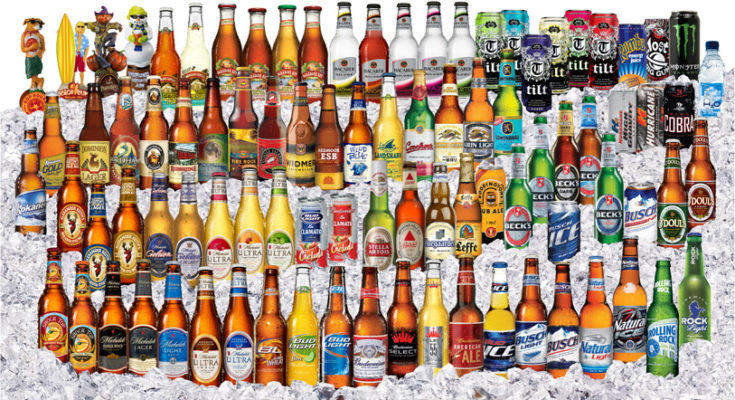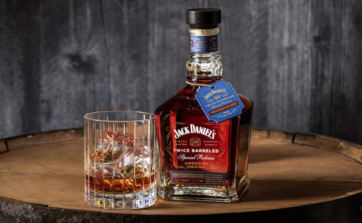The megabrewer keeps snapping up small brewers. How many is too many?
Maybe Boston Beer (NYSE:SAM) founder and chairman Jim Koch was right after all. Maybe the Justice Department does need to rein in Anheuser-Busch InBev (NYSE:BUD) and its voracious appetite for craft breweries.
Just six months after acquiring Texas-area craft brewer Karbach Brewing, Anheuser-Busch said it would be taking another one off the market with its acquisition of Wicked Weed Brewing of Asheville, North Carolina, marking the 10th craft brewer it’s bought to join its “high-end business.”
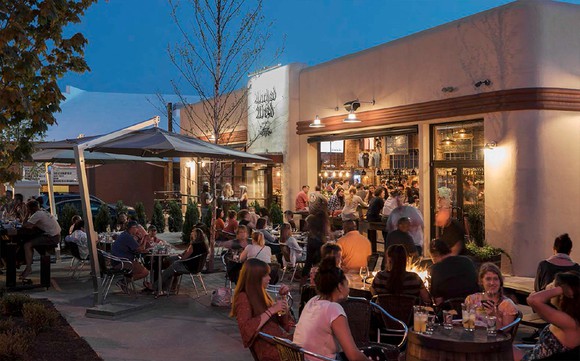
Brewing Up Trouble
Koch has been feeling testy lately about A-B’s acquisitiveness. First in an op-ed in The New York Times, then in an interview with industry site Food Dive, the craft brewer charged that craft brewers getting gobbled up by megabrewers like A-B were limiting consumer choice and antitrust regulators need to step forward to put a stop to it. Although the Justice Department had said at the time of A-B’s acquisition of SABMiller that it would give close scrutiny to the brewer’s acquisitions, there’s been no let up in Anheuser-Busch’s relentless drive to roll up the industry under its umbrella.
Wicked Weed is the latest one to fall. The 5-year-old craft brewery owns and operates four facilities in Asheville and has created more than 500 different beers. In its statement announcing the acquisition, A-B said Wicked Weed started “with clean West Coast IPAs and authentic Belgian ales [and] has progressively moved into creating sours.”
The announcement also comes as Heineken (NASDAQOTH:HEINY) acquired the rest of Lagunitas Brewing that it didn’t already own. The Dutch brewer originally took a 50% stake in Lagunitas, which was the fifth-largest craft brewer in the U.S. by volume. It has two breweries in Chicago and Petaluma, with a third scheduled to open in Azusa, California, next year.
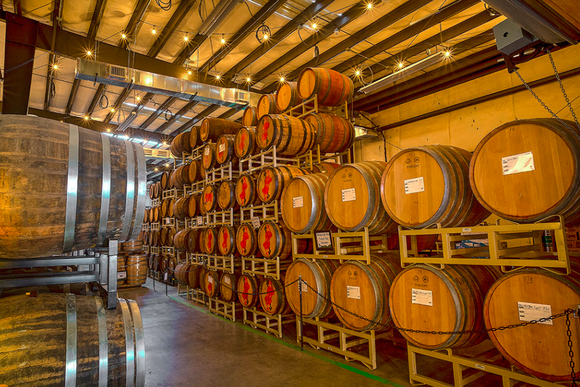
Koch decried the loss of craft brewers to their bigger brethren saying regulators needed “to encourage the big brewers to innovate and enter craft beer on their own rather than buying craft breweries and reducing the number of competitors that way.”
Yet as Molson Coors (NYSE:TAP) Vice Chairman Peter Coors responded, it’s simply easier and cheaper to buy their way into the market, so the brewer is “going to do what is economically most viable for our company.”
A big batch of opportunity
While the Wicked Weed acquisition seems to underscore what Koch has been shouting about, it also misses the mark in that it fails to take into account the goals of the small craft brewers themselves. Koch has certainly been a tireless advocate and cheerleader for the industry, but not everyone embraces his admonition to stay small and make great beer. Wicked Weed’s co-founder echoes the sentiments of many craft brewers that have sold out to the megabrewers by saying these partnerships are an opportunity for them to have their beers tasted by a much larger group of craft beer drinkers.
When Constellation Brands (NYSE:STZ) purchased Ballast Point Brewing, it was able to transform the beer from being a largely West Coast phenomenon into a national sensation by increasing the beer’s distribution. Ballast Point ended up helping drive Constellation’s organic beer sales 13% higher last year.
While there will always be a bright line dividing those brewers who want the industry to stay pure, some are protesting what they see as selling out to what some consider to be an ‘evil empire’.
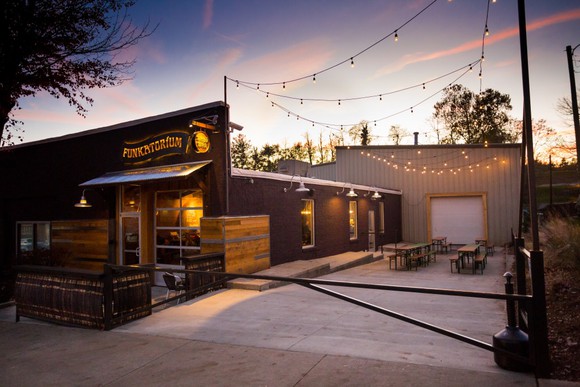
Turning off the tap
When the Wicked Weed announcement hit the wires, craft beer bars across the country began destocking its beer from their storerooms. Others craft brewers withdrew from the Funkatorium beer festival Wicked Weed hosts because they said it would show support for what Anheuser-Busch is doing. The North Carolina Craft Brewers Guild revoked Wicked Weed’s membership (though it would have to do since it was no longer considered a craft beer), while BeerAdvocate reportedly withdrew the brewer’s invitation to participate in the Beer Meets Wood festival.
There are additional potential risks for craft brewers accepting a buyout from a megabrewer, beyond just alienating the very drinkers that created their popularity. While getting national distribution is one of the benefits, there’s no guarantee the brews you created in your local market will resonate elsewhere in the country, or that beer drinkers will even find them.
One of the problems Boston Beer has encountered is the pressure of limited shelf space because there are just so many beers to choose from. While a packaged goods store might allow A-B to put Wicked Weed on its shelf because of its size, the beer may still look like just one of any number of other craft beers in stock.
There are over 5,000 breweries operating today and almost all of them are craft. With the popularity of local beers driving the market today, a North Carolina brew won’t necessarily take off in Seattle.
Jim Koch doesn’t need to push for more regulation; the marketplace will sort it out on its own. Moreover, Anheuser-Busch might just come to realize it is diminishing the returns on its investment with the more craft brewers it buys.
10 stocks we like better than Boston Beer
When investing geniuses David and Tom Gardner have a stock tip, it can pay to listen. After all, the newsletter they have run for over a decade, Motley Fool Stock Advisor, has tripled the market.*
David and Tom just revealed what they believe are the ten best stocks for investors to buy right now… and Boston Beer wasn’t one of them! That’s right — they think these 10 stocks are even better buys. (Rich Duprey (TMFCop)/The Motley Fool)
ADVERTISEMENT


